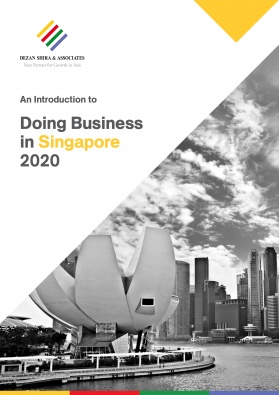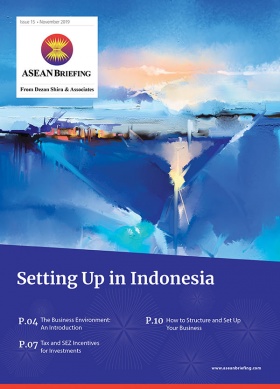Singapore Establishes Green Lane with Japan for Essential Travel
- Singapore and Japan established a travel corridor on September 18, 2020, to facilitate essential business and official travel between the two countries.
- Eligible travelers will have to adhere to strict health protocols, such as taking a, COVID-19 PCR test prior to travel and upon arrival.
- This is Japan’s first travel corridor with another country, but Singapore has already established such corridors with Malaysia, China, South Korea, Brunei, and New Zealand.
On September 18, 2020, Singapore officially opened a reciprocal green lane (RGL) with Japan to facilitate short-term business and official travel between the two countries.
This is the first travel corridor Japan has implemented, whereas Singapore has established RGLs with Malaysia, Brunei, New Zealand, China, and South Korea. The latest RGL with Japan is aimed at helping restore connectivity and encouraging economic recovery – trade between the two was estimated at US$17 billion in 2019.
Singapore and Japan also signed the Japan-Singapore Economic Partnership Agreement (JSEPA) in 2002, which eliminated all tariffs on exports from Japan to Singapore as well as tariffs for 92 percent of Singapore’s exports to Japan.Visitors travelling under the RGL are obligated to follow strict health protocols, such as COVID-19 testing pre- and post-arrival, in addition to adhering to their strict travel itineraries, among others.
What are the perquisites to enter Singapore?
To enter Singapore under the RGL, visitors must be sponsored by a Singaporean-based company or government agency, who will then apply for a SafeTravel Pass on behalf of the traveler. The SafeTravel Pass is a mandatory document for all inbound travelers entering the country.
Once a SafeTravel Pass has been approved, the sponsor will receive an email notification containing an approval letter; both documents must be presented to immigration officials in Singapore upon arrival.
Further, the traveler can then apply for a visa, if required.
What are the pre-departure measures?
Prior to departure to Singapore, the visitor must have stayed in Japan for the previous 14 days. Moreover, the traveler must take a COVID-19 PCR exam at least 72 hours before departure, the certificate is to be presented to immigration authorities. The traveler is reminded to take the test in a health center designated by the Japanese government.
In addition to the aforementioned documents, the visitor must produce a return ticket in addition to downloading the SG Arrival Card from either the Google Play Store or the Apple Store, free of charge. The SG Arrival Card provides the immigration authorities with the travel and health history of the traveler.
Arrival in Singapore
Upon arrival in Singapore, the visitor must present the following documents:
- SafeTravel Pass;
- Visa (if applicable);
- A negative COVID-19 PCR certificate; and
- A return ticket.
Applicants will then be asked to take another COVID-19 PCR test at a government-designated test center, at their own cost. The traveler’s sponsor will then transport them to their self-declared accommodation, using only private transportation. The traveler must stay in their accommodation until the result is released.
If the result is negative, the traveler is free to continue with their itinerary, and they must adhere to any prevailing health protocols. During their stay, they need to subscribe to the TraceTogether and SafeEntry contact tracing apps.
Visitors that do test positive during their stay in the country will be treated at a COVID-19 health facility, at their own cost.
What are the perquisites to enter Japan?
Singapore citizens, permanent residents, and long-term pass holders who have essential or official business in Japan will be permitted to enter the country.
However, these visitors must be sponsored by a Japanese-based company or government agency, and the traveler must have stayed in Singapore for 14 days before departure.
What are the pre-departure measures?
All visitors will need to apply for a visa, the length and type of which will be assessed on a case by case basis by the authorities in Japan.
As part of the application process, the applicant must submit a ‘written pledge’ that they will abide by all health protocols in Japan, as well as their detailed itinerary to the Japanese embassy in Singapore. These must be signed by their sponsor in Japan.
Once the visa is approved, the embassy will request the applicant to take a COVID-19 PCR test, which must be done 72 hours before departure. This must be done at a government-certified health facility, which can be found here. The certificate should declare the traveler is negative for the virus.
The entry points in Japan under the RGL are through the following ports:
- Tokyo — Narita International Airport and Haneda International Airport; and
- Osaka — Kansai International Airport.
Arrival in Japan
Upon arrival in Japan, travelers must present the aforementioned documents, in addition to undergoing another COVID-19 test at the airport.
Travelers can then depart to their self-declared accommodation but are forbidden to take public transport in the process. The immigration authorities will require proof of arrangements for private transportation. The traveler must remain in their accommodation until the test result is released.
The visitor is limited to the activities described in their itinerary and must refrain from using public transport for at least the first 14 days of their stay.
About Us
ASEAN Briefing is produced by Dezan Shira & Associates. The firm assists foreign investors throughout Asia and maintains offices throughout ASEAN, including in Singapore, Hanoi, Ho Chi Minh City and Jakarta. Please contact us at asia@dezshira.com or visit our website at www.dezshira.com







